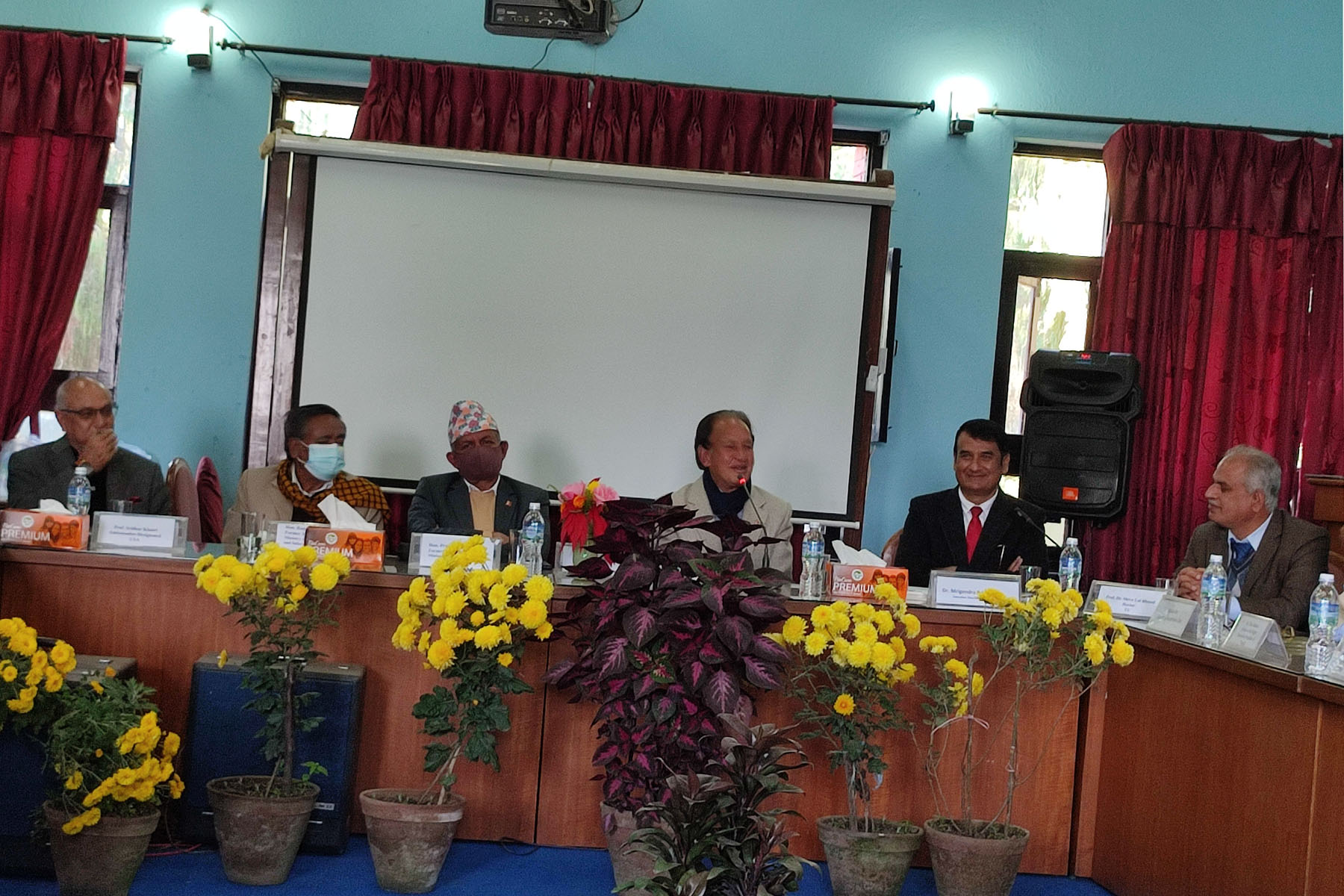RSS (KATHMANDU, 20 November 2021) – Foreign Minister Dr Narayan Khadka has pointed out the need of innovative foreign policy based on national consensus which pays heed to the changed context.
Foreign Minister Dr Khadka was saying it during a programme organized by the Centre for Nepal and Asian Studies (CNAS) under Tribhuvan University here today. “I’m active to devise the foreign policy, keeping national interest in centre and paying attention to changes in global arena and geopolitical situations. It also adheres to the good practices the previous government adopted and consults the political leadership,” he said, adding that the foreign policy should be taken ahead in a strategic and balanced manner as the powerful nations were competing in the world, he reminded.
The Minister also opined that Nepal should be aware how it could reap benefit from the progress in its neighbours- China and India- by keeping national interest in centre. “We should be able to treat all in an equal manner where the national interest lies,” he underlined. The problems, if any with neighbour, could be resolved via diplomatic dealing rather than conflict, he mentioned. According to him, Nepal’s historical documents as original copies of treaties and heritages were not protected well in the past, so the search for the lost documents from libraries, and the stolen ones was continued at present.
He laid emphasis on ending the trend of giving priority to writings by foreigners rather than by the national figures. The academic institutes like CNAS should be made resourceful, he added. On the occasion, former foreign minister and CPN UML leader Pradip Gyawali said Nepal can move ahead, keeping national interest in the centre and maintaining harmonious relations with its neighbours and friends. How Nepal can benefit from emerging powers- China and India-should be a focus now, he reminded. Similarly, former minister and CPN (Maoist Centre) leader Ram Karki viewed the projects as MCC and BRI were dragged into controversy for not having integrated foreign strategy in Nepal.
He wondered why the political parties failed to prepare a clear policy on development. Moreover, proposed Nepali Ambassador to the US and Prof Shreedhar Khatri stressed that Nepal should be able to establish its identity in this changed global context. He suggested adoption of balanced foreign policy keeping geopolitical situation in mind at a time when the neighbouring countries were the emerging powers. Stating that it was necessary to formulate fundamental foreign policy of the country, Executive Director of CNAS, Mrigendra Bahadur Karki added the Centre would forward research activities on national security, foreign policy and diplomacy from its internal resources. Karki shared that CNAS would take initiatives to prepare a common concept by holding separate talks with former prime ministers and former foreign ministers regarding foreign policy. The 11th series of Strategic Studies published by CNAS was released on the occasion.
Established in 1984 at a time when cold war was raging in the world, CNAS had published the series for the few years and postponed after the 10th series. The 11th series was published this year in a gap of 35 years. The series has incorporated interview of President Bidya Devi Bhandari, and research-oriented articles by foreign affairs experts Ananda Aditya, Gaurav Shumsher Thapa, Lalbabu Yadav, Chanda Dev Bhatta, Chinese lecturers as well as speech delivered by Chinese Ambassador during Nepal visit and photos captured during President Bhandari’s foreign visit.


